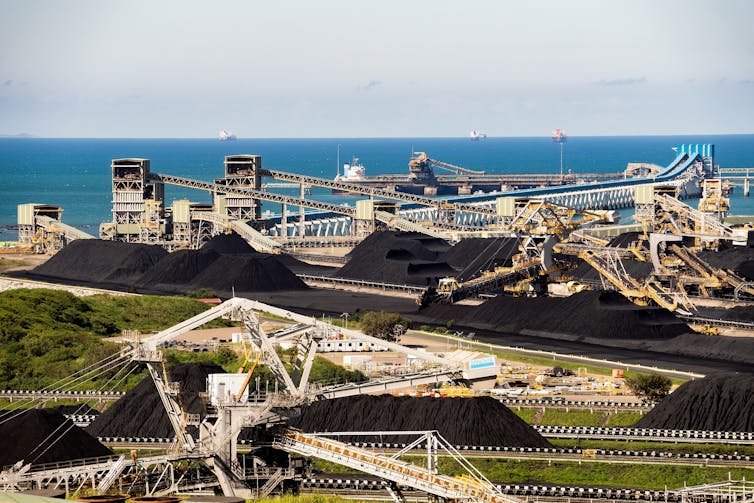COP28: How will Australia navigate domestic climate wins and fossil fuel exports at the negotiating table?
- Written by Jacqueline Peel, Director, Melbourne Climate Futures, The University of Melbourne

As the COP28 climate summit gets underway in the oil production hub of the United Arab Emirates today, Australia’s climate minister Chris Bowen will detail our progress in meeting emissions cut targets and updated projections.
The second Annual Climate Change Statement will be tabled in parliament at noon. But we already know some of the detail. Australia is now likely to cut its emissions 42% below 2005 levels by 2030 – very close to the legislated 43% target the government introduced last year.
This is likely to give Bowen a spring in his step, when combined with last week’s funding announcement on renewables and storage. From this strengthened platform, he will argue Australia can be trusted to meet its climate goals.
Next week Bowen heads to Dubai to lead Australia’s negotiating team. He can expect international pressure to be more ambitious in setting the nation’s 2035 target. This is essential if we are to keep 1.5°C within reach. Scientists consistently say wealthy countries such as Australia should be cutting their emissions by 50 to 75% by 2030 to meet the Paris Agreement goals.
But Bowen can also expect a different pressure, as efforts to phase down or phase out fossil fuels such as Australia’s gas and coal gather pace.
What role will Australia play in COP28 negotiations?
At COP28, Australian negotiators are likely to have two broad objectives. The first is to achieve ambitious emissions reductions in line with the Paris Agreement’s 1.5°C goal. The agreement requires countries to make increasingly stringent five year plans – called “nationally determined contributions” – in line with keeping global warming within the range of 1.5–2°C.
The second is to ensure positive outcomes for our Pacific neighbours. These objectives are linked, given the existential threat climate change poses to many Pacific island countries if 1.5°C of warming is exceeded.
Australia will play a prominent role in negotiations around adapting to climate change, as assistant climate minister Jenny McAllister will co-chair this work. We will also be visible in efforts to lay out the ground rules for the new Loss and Damage fund, a key outcome from last year’s COP27 in Egypt.
Negotiators are also hoping for an announcement on Australia’s bid to host a joint Australia-Pacific COP meeting in 2026. This bid has already increased global scrutiny of Australia’s international engagement on climate and its domestic actions.
The elephant in the room will be fossil fuels
For many nations – especially our Pacific neighbours – the elephant in the room is Australia’s plans to keep expanding fossil fuel production. This overshadows Australia’s credibility on domestic emissions reduction and its commitment to the Pacific.
As resources minister Madeleine King spruiked in June, Australia is “one of the world’s largest exporters of liquefied natural gas, as well as the world’s largest exporter of metallurgical coal and second largest exporter of thermal coal”, based on 2021 figures.
The federal government continues to approve new and expanded coal mines under the nation’s main environmental laws, the Environment Protection and Biodiversity Conservation Act. This is despite the contribution to climate change made by the emissions of the coal when burned.




